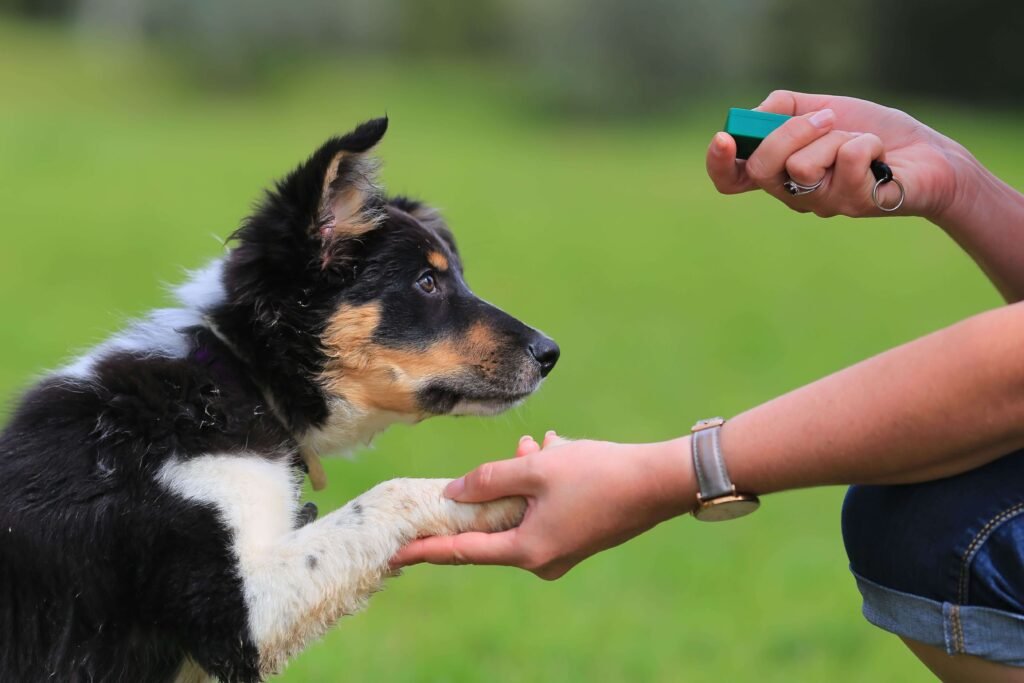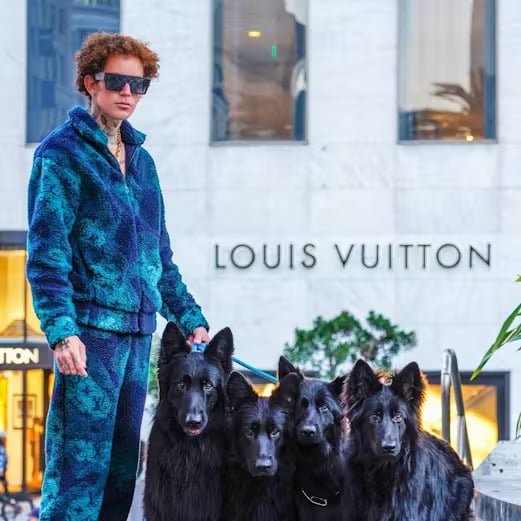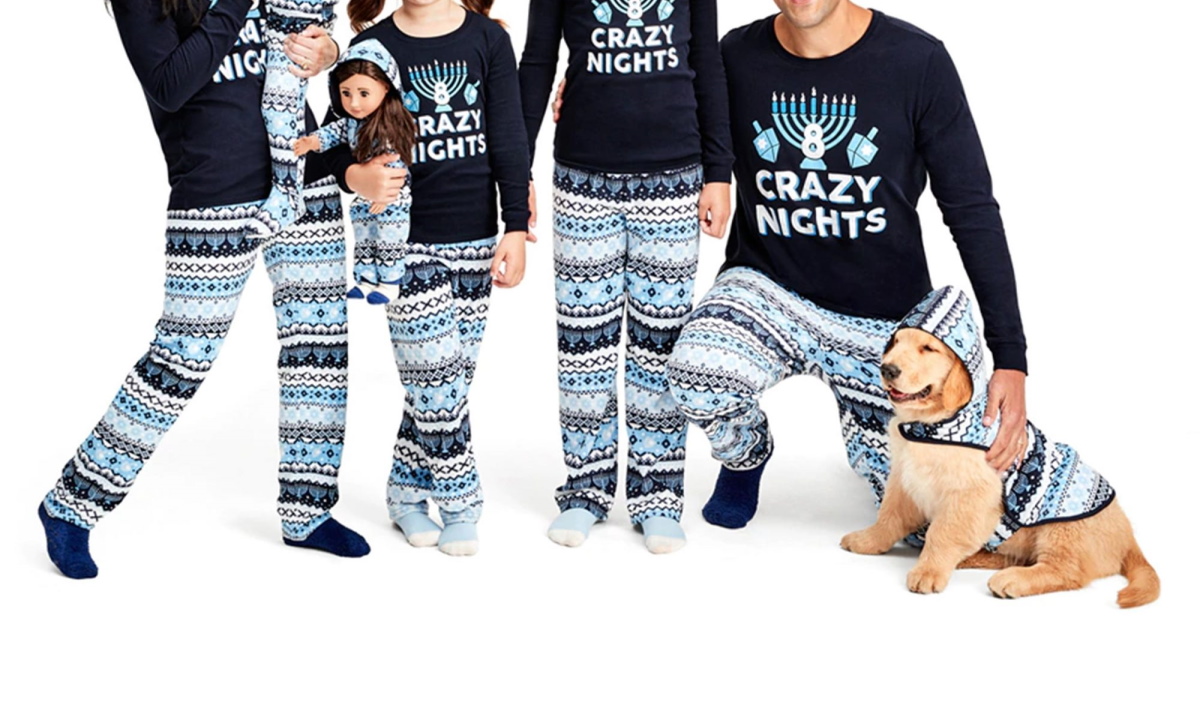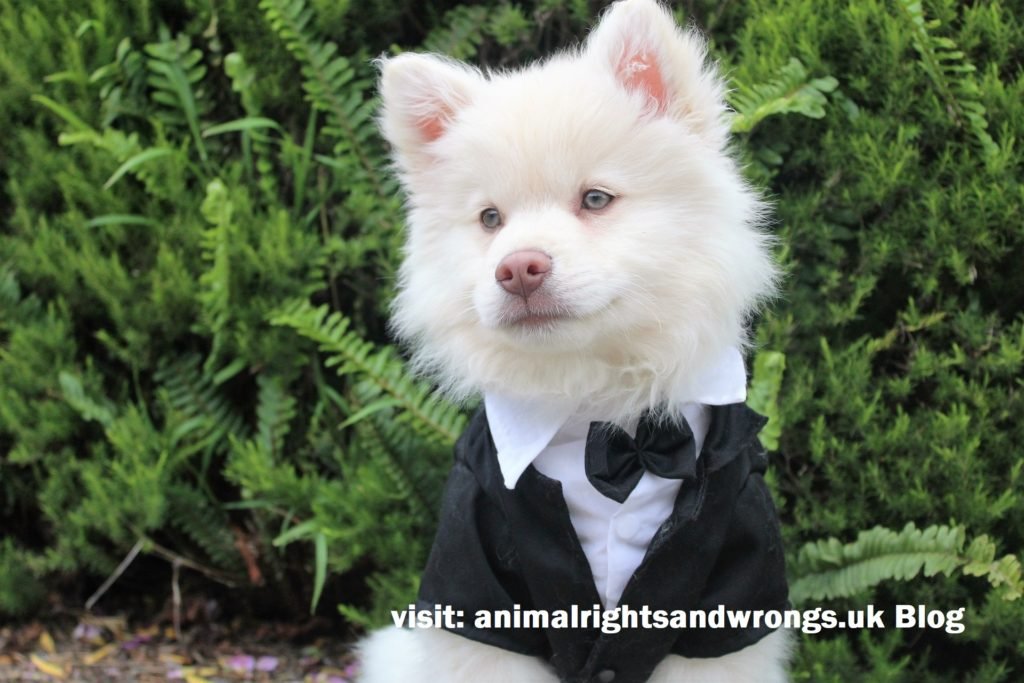The Dog Daddy aka Augusto DeOliveira, is yet another in a long list of showman dog trainers who pop up from time to time and court controversy in order to gain celebrity and at the same time make huge sums of money out of gullible dog owners and followers. Dog training is big business and very lucrative and totally unregulated in most countries. Wherever their is money to be made there will always be someone to take advantage of it.
Dog training is big business and lucrative.
He is young, good looking, has chosen a catchy moniker, knows how to capitalise social media, surround himself with hype and garner millions of followers worldwide, particularly the young. He swaggers about in designer clothes and sunglasses having photographs with the usual celebrity clients and poses outside designer shops. He will be a multi-millionaire in no time, if not already. It is just about presentation and hype. Basically the dogs are just props for his huge marketing campaign.
Like other controversial trainers before Dog Daddy there are moves to ban him from the U.K. and there is a Change.org petition with this intent at the moment. He was due to hold training sessions at secret locations recently but these were cancelled probably partly because of protests from the RSPCA, the British Veterinary Association, The Kennel Club and many others.

But what of Dog Daddy methods.
His methods are nothing new particularly in America: using prong collars, stringing up dogs, yanking and dragging them harshly and poking them. Despite his suspect methods owners willingly to offer up their sacrificial dogs for punishment.
Celebrity trainers come and go. Back in the 1970’s and 1980’s we had the highly celebrated Barbara Woodhouse in the U.K. and across the world, probably the mother of this brand of dog trainers. She made a good living and fame from her TV programmes, books and documentaries about her methods. This was mainly because of her perceived eccentricity which always makes good TV. She was regarded by many dog owners as a saviour and by others as heavy handed and cruel with her domineering methods.
Another more recent example was American showman dog trainer Jeff Gellman who was accused of hitting dogs with a rolled up towel and uses prong collars and remote control shock collars to keep dogs in line. The use of such instruments of torture are much used in North America and are readily available on the internet in the U.K. His YouTube videos and live appearances garnered him wealth and fame and followers who queued up willing to pay large sums of money for a session with him.
The argument over negative and positive reinforcement.
We now live in a world of dog behaviourists, clinical animal behaviourists, psychiatrists, counsellors and a variety of trainers to make dogs compliant and contented with our modern lifestyles. All because as owners we have made them nervous wrecks in one way or another.
The methods used by Dog Daddy and his ilk highlight the great division that still exists after decades of research and debate regarding the best and most humane way of training a dog to fit in with our modern lifestyles. Every self proclaimed dog behaviourist and trainer has their own ideas. But then everybody likes to think they are a dog expert.
“Experts” have long disagreed over the two main variants of training: “Aversive” or “negative reinforcement” training favoured by most showman trainers utilises brute force but is viewed as counter productive and stresses dogs, compared with “positive reinforcement” where dogs are bribed with treats and praised to toe the line. Whether any of this is scientifically sound or not, common sense dictates that hitting, yanking and electrocuting dogs is probably not the most humane course of action.
You can beat humans and enslave or make them submissive with the right methods but it doesn’t mean the method is right or acceptable.


